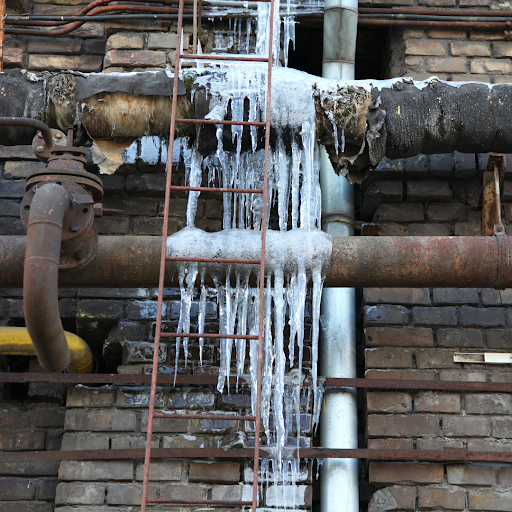How do you actually feel on the subject of How to prepare your home plumbing for winter weather?

Cold weather can ruin your pipes, specifically by freezing pipes. Right here's exactly how to avoid it from taking place and what to do if it does.
Introduction
As temperatures decline, the risk of icy pipelines rises, possibly causing expensive repairs and water damage. Understanding exactly how to avoid frozen pipes is crucial for homeowners in cool environments.
Avoidance Tips
Shielding susceptible pipelines
Wrap pipes in insulation sleeves or make use of heat tape to protect them from freezing temperatures. Focus on pipes in unheated or outside locations of the home.
Heating methods
Maintain indoor spaces appropriately warmed, specifically locations with plumbing. Open up closet doors to permit cozy air to flow around pipes under sinks.
Exactly how to determine icy pipelines
Try to find reduced water circulation from taps, unusual odors or sounds from pipes, and visible frost on revealed pipes.
Long-Term Solutions
Structural adjustments
Take into consideration rerouting pipes far from exterior walls or unheated areas. Add extra insulation to attic rooms, cellars, and crawl spaces.
Updating insulation
Buy top quality insulation for pipes, attic rooms, and wall surfaces. Correct insulation aids keep regular temperature levels and minimizes the danger of frozen pipelines.
Securing Outside Pipes
Garden pipes and outside faucets
Disconnect and drain pipes yard tubes before winter months. Mount frost-proof faucets or cover outside taps with shielded caps.
Understanding Icy Pipelines
What causes pipes to ice up?
Pipes freeze when revealed to temperature levels listed below 32 ° F (0 ° C) for prolonged periods. As water inside the pipes ices up, it broadens, putting pressure on the pipe wall surfaces and possibly triggering them to rupture.
Risks and problems
Frozen pipelines can result in supply of water disturbances, building damage, and expensive repair work. Ruptured pipes can flooding homes and trigger substantial structural damage.
Indications of Frozen Piping
Recognizing icy pipes early can stop them from bursting.
What to Do If Your Pipelines Freeze
Immediate actions to take
If you believe frozen pipelines, keep taps open up to relieve pressure as the ice thaws. Use a hairdryer or towels taken in warm water to thaw pipes gradually.
Final thought
Avoiding icy pipes requires positive measures and fast reactions. By recognizing the causes, signs, and safety nets, home owners can safeguard their plumbing during cold weather.
Helpful Tips to Prevent Frozen Pipes this Winter
UNDERSTANDING THE BASICS: WHY PIPES FREEZE AND WHY IT’S A PROBLEM
Water freezing inside pipes is common during the winter months, but understanding why pipes freeze, and the potential problems it can cause is crucial in preventing such incidents. This section will delve into the basics of why pipes freeze and the associated problems that may arise.
THE SCIENCE BEHIND FROZEN PIPES
When water reaches freezing temperatures, it undergoes a physical transformation and solidifies into ice. This expansion of water as it freezes is the primary reason pipes can burst. As the water inside the pipe freezes, it expands, creating immense pressure on the walls. If the pressure becomes too great, the pipe can crack or rupture, leading to leaks and water damage.
FACTORS THAT CONTRIBUTE TO PIPE FREEZING
Low Temperatures: Extremely cold weather, especially below freezing, increases the risk of pipes freezing. Uninsulated or Poorly Insulated Pipes: Pipes located in unheated areas, such as basements, crawl spaces, or attics, are more prone to freezing. Insufficient insulation or lack of insulation altogether exacerbates the problem. Exterior Wall Exposure: Pipes running along exterior walls are susceptible to freezing as they encounter colder temperatures outside. Lack of Heating or Temperature Regulation: Inadequate heating or inconsistent temperature control in your home can contribute to frozen pipes. PROBLEMS CAUSED BY FROZEN PIPES
- Pipe Bursting: As mentioned earlier, the expansion of water as it freezes can cause pipes to burst, resulting in significant water damage.
- Water Damage: When pipes burst, it can lead to flooding and water damage to your property, including walls, ceilings, flooring, and personal belongings.
- Structural Damage: Prolonged exposure to water from burst pipes can compromise the structural integrity of your home, leading to costly repairs.
- Mold and Mildew Growth: Excess moisture from water damage can create a favorable environment for mold and mildew growth, posing health risks to occupants.
- Disrupted Water Supply: Frozen pipes can also result in a complete or partial loss of water supply until the issue is resolved.
WHY CERTAIN PIPES ARE MORE PRONE TO FREEZING
- Location: Pipes located in unheated or poorly insulated areas, such as basements, crawl spaces, attics, or exterior walls, are at higher risk of freezing.
- Exterior Pipes: Outdoor pipes, such as those used for irrigation or exposed plumbing, are particularly vulnerable to freezing as they are directly exposed to the elements.
- Supply Lines: Pipes that carry water from the main water supply into your home, including the main water line, are critical to protect as freezing in these lines can affect your entire plumbing system.
- Underground Pipes: Pipes buried underground, such as those connected to sprinkler systems or outdoor faucets, can be susceptible to freezing if not properly insulated.
https://busybusy.com/blog/helpful-tips-to-prevent-frozen-pipes-this-winter/

I hope you enjoyed our section about How To Avoid Freezing Pipes. Many thanks for taking the time to browse our post. Sharing is nice. Who knows, you might be helping someone out. Thanks for being here. Please stop by our blog back soon.
Click Here